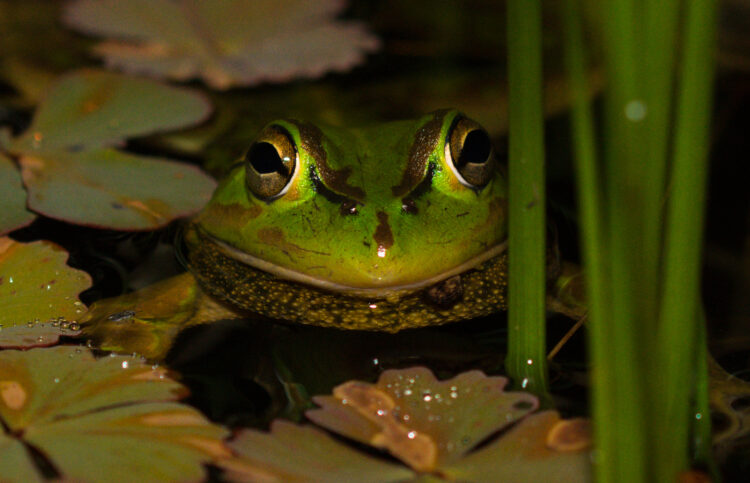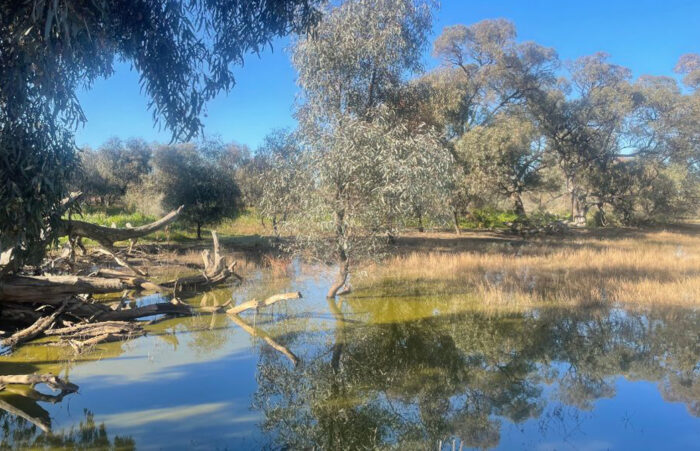
Along an irrigation channel in southern New South Wales, farmers are directing environmental water into cotton farm wetlands to help save an endangered species of frog.
Environmental water was redirected from the Coleambally Irrigation Scheme to wetlands on a range of farms and crown land during late spring and summer 2021-22 to help promote breeding for the endangered Southern Bell Frog.
At Scott Hogan’s cotton farm, 140ML of water went into his 10-hectare wetland that links to a network of neighbouring wetlands within 10km.
Scott produces about 800ha of cotton on his 2500ha farm and said enhancing a natural habitat for the Southern Bell Frog also improved the environment for other native species.
“The idea is for the Southern Bell Frog to have their eggs in the water at the wetlands during these three months, making it harder for predators,” Scott said.
While Scott is yet to see a Southern Bell Frog himself, he knows by providing a breeding ground they will eventually come hopping.
He said the frogs enhanced his integrated pest management system – where native wildlife manage pest that could otherwise harm his crop.
“These frogs are great for our farm and the environment. By working with the irrigation collaborative and the government on environmental issues it helps ensure the next generation can continue farming,” Scott said.

Scott is a fourth-generation farmer and initially farmed rice, wheat and sheep.
He says the land is more suited to cotton, which is why he started farming cotton in 2011.
Scott’s farm was one of 12 involved in the 2021-2022 Southern Bell Frog project in the Coleambally region.
Coleambally Irrigation’s Environmental Compliance Officer Keith Thompson told Cotton Australia it can take several consecutive seasons of providing environmental water before the frogs start using the wetlands.
The region is well known as a rice growing area, but the transition into cotton growing during the past 10 years has reduced the water refuges that are associated with rice crops.
Instead of ignoring the issue, farmers and the Coleambally Irrigators have collaborated with the NSW Department of Planning and Environment to reduce the impact on the endangered species.
“We have been delivering environmental water on and off for 20 years due to drought impacts, but we have several sites that have been watered every year since 2016,” Keith said.
“This environmental water has become even more important to us because we are no longer able to rely on rice providing the refuges for the frogs.”
Scott is anticipating he will continue watering his wetland this upcoming season to ensure the survival of the Southern Bell Frog and is hoping to spot one soon.
